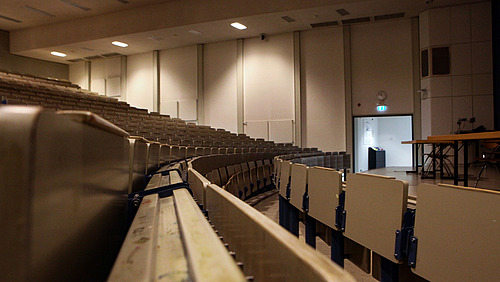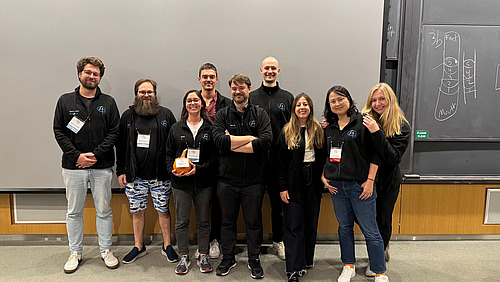At around 44 percent, students from Asia represent the largest group nationwide. The number of international students at Osnabrück University is also growing continuously. However, there are clear differences in the structure of origin compared to the national trend.
According to the HSI Monitor, most international students in Germany come from India (12.9 percent) and China (10.2 percent). At Osnabrück University, on the other hand, Turkey (180 students) was the top country of origin in the winter semester 2024/25 - followed by India (151) and Iran (107). China, on the other hand, was only in sixth place, behind Syria and Egypt.
Overall, the number of international students at Osnabrück University has risen continuously: from 853 in the 2020/21 winter semester to 1365 in the 2024/25 winter semester. There are currently around 13,350 students at Osnabrück University. The degree courses that are predominantly offered in English, such as the Master's in Economics, Biology or Cognitive Science, are particularly popular with international students.
"The growing number of international students enriches our university in a special way - it brings new perspectives into the lecture halls, strengthens academic exchange and makes our campus a place of living diversity," says Prof. Dr. Andrea Lenschow, Vice President for International Affairs, Diversity and Academic Staff Development at Osnabrück University. "The university sees it as its duty to offer these young people the best study and living conditions so that they feel welcome here and can develop their full potential." At the same time, this trend is entirely in line with the internationalization strategy developed by the Senate and Executive Board and adopted in November 2024.
Malte Paolo Benjamins, Head of the International Office at Osnabrück University, also welcomes this development and sees it as a great opportunity: "The fact that international students enrich our city and university culturally and academically is undisputed - a recently published DAAD study also proves their significant economic contribution. In order for this effect to be felt in Osnabrück in the long term, we need to work in tandem with the urban community, politicians and other partners to create the conditions that make international studies here attractive and successful."
Further information for editorial offices:
Malte Paolo Benjamins, Osnabrück University
International Office
E-mail: malte.paolo.benjamins@uni-osnabrueck.de





